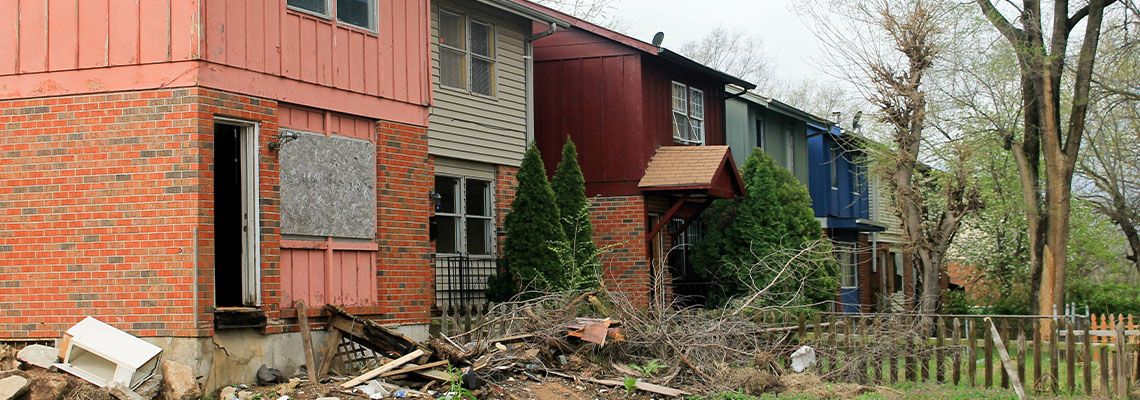
Understanding Act 135 in Pennsylvania
According to the Census Bureau, approximately 15.1 million homes nationwide sat vacant in 2022. The Abandoned and Blighted Property Conservatorship Act (Act 135) is a legislative tool designed to tackle the pervasive issue of blighted property in Pennsylvania. It empowers communities to take action against neglected properties that are a blight on their neighborhoods. The Act allows for the appointment of a conservator who can take control of abandoned or blighted properties, rehabilitate them, and return them to productive use.
To grasp the significance of Act 135, it's essential to define some key terms. According to the law, blighted properties are those that pose a threat to public health, safety, or welfare due to their physical condition, use, or occupancy status. Abandoned properties, on the other hand, are those left vacant for an extended period, often becoming magnets for crime and contributing to the decline of surrounding property values.
As a real estate lawyer based in Pennsylvania, I've seen firsthand the impact of Act 135 on our communities. This influential legislation has significantly shaped various aspects of real estate law, particularly regarding conservatorship. Overall, the impact of Act 135 has been profound, providing communities with a mechanism to reclaim and revitalize neglected areas. By enabling the rehabilitation of blighted properties, Act 135 contributes to the economic and social well-being of neighborhoods throughout the state.
Filing a Petition
Who Can File a Petition?
Any individual or organization with a vested interest in the rehabilitation of a blighted property can file a petition under Act 135. This includes residents, community groups, nonprofits, and local government entities. The petitioner must demonstrate standing by showing a direct connection to the property or its surrounding area.
Overview of the Process
The process of filing a petition under Act 135 involves several steps. It begins with identifying a blighted property and gathering evidence to support the petition. This evidence may include photographs, property records, and documentation of any public health or safety hazards posed by the property.
Once the petition is filed with the appropriate court, a hearing is scheduled to review the merits of the case. If the court finds sufficient evidence of blight and abandonment, it may appoint a conservator to take control of the property and initiate the rehabilitation process.
Conditions for Conservatorship
The appointment of a conservator is contingent upon meeting certain conditions outlined in Act 135. These conditions include demonstrating that the property meets the criteria for blight and abandonment, as well as showing that the proposed conservator has the capacity and resources to undertake the rehabilitation efforts effectively.
The appointment of a conservator is a crucial step in the process of reclaiming blighted properties. The conservator is tasked with developing and implementing a rehabilitation plan that addresses the specific needs of the property and the surrounding community. This may involve securing financing, obtaining permits, and coordinating with local stakeholders to ensure the successful revitalization of the property.
How an Attorney Can Assist You
Trying to understand the legal implications of Act 135 can be difficult, which is why seeking legal assistance is highly recommended. An experienced attorney can provide invaluable guidance and representation throughout the petition process, ensuring that your interests are advocated for in court. From gathering evidence to presenting your case before a judge, an attorney can offer knowledge and support every step of the way.
Moreover, attorneys well-versed in real estate law and community development can provide strategic advice on maximizing the impact of Act 135 within your neighborhood. Whether you're a concerned resident or a community organizer seeking to combat blight, having legal counsel by your side can make a significant difference in your efforts to revitalize your community.
Seek Trusted Legal Counsel
In my practice at Marc V. Taiani, Esquire and Allegheny Attorneys at Law, P.C., I've guided countless clients through challenges surrounding Act 135. From defining key terms to explaining the significance of the Act, from detailing the petition filing process to clarifying the conditions for conservatorship, I offer my clients personalized advice and representation to help them achieve their goals. Leveraging my extensive knowledge of Pennsylvania legislation and my hands-on experience with similar laws, I'm committed to assisting you in effectively addressing any legal matters related to Act 135.